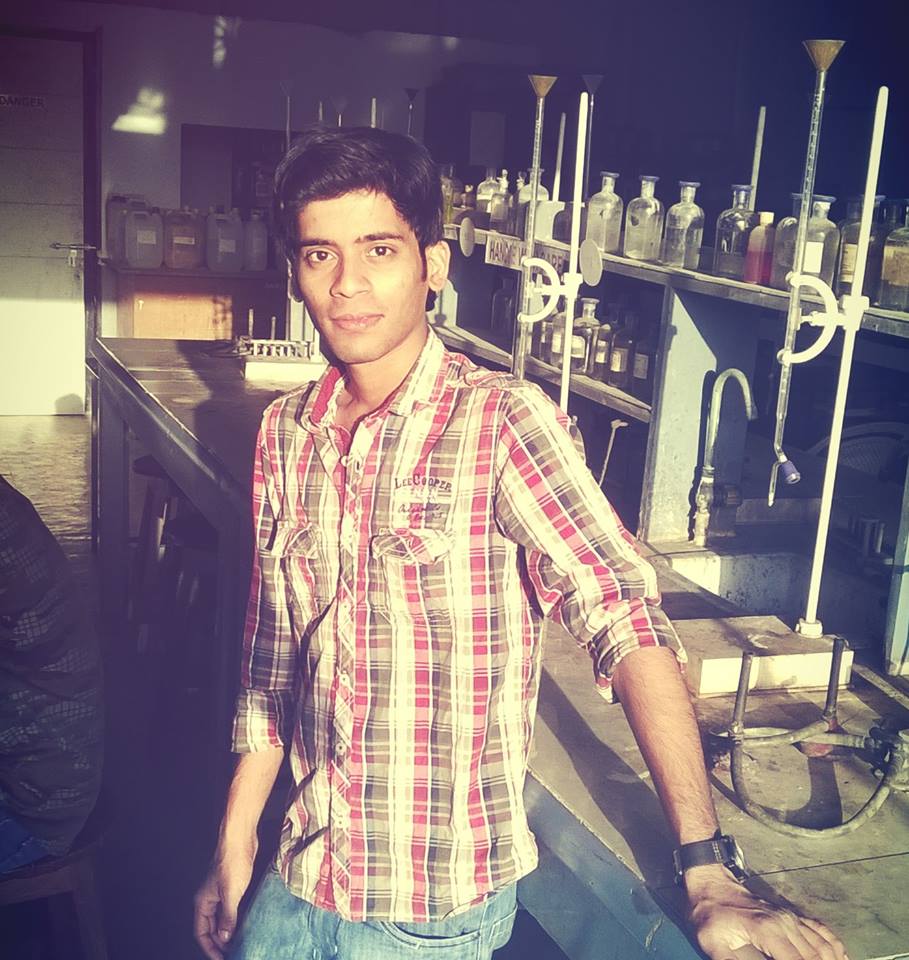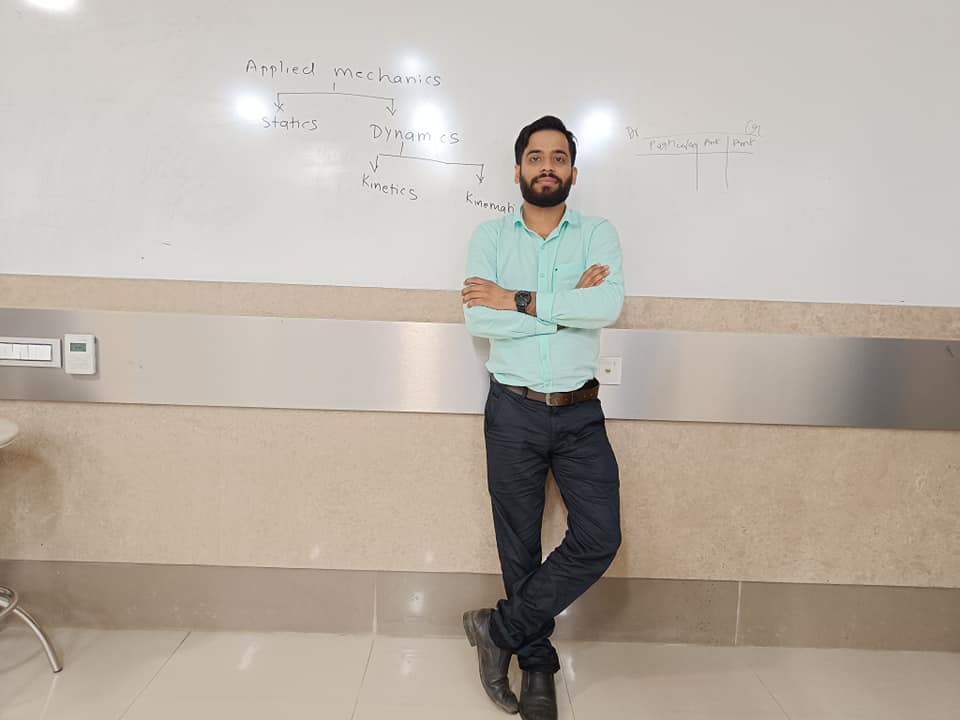
Welcome to the latest in a series of AIChE blog posts profiling process engineers, a diverse group of professionals spanning multiple industries and regions. In this series, we profile process engineers who work in a wide range of fields, including petrochemicals, pharma, bulk chemicals, food, and other process-intensive industries.
Are you a member and process engineer interested in being profiled? We’d love to hear from you via this volunteer opportunity. Please also check out our online discussion group specifically for process engineers. You can find out about these initiatives and join our efforts by visiting aiche.org/process-engineers.
This month, we introduce you to Arunkumar Yadav, Managing Partner and Process Engineer at Engivate Engineers & Associates, and Technical Head of Shree Shakti Engineering Works. He discusses the path that led to his career in process engineering, overcoming challenges, and the importance of his work.
Tell us a bit about your work as a process engineer.
With over seven years of dedicated experience in the industry, I started on my journey as an in-plant trainee in the process engineering department of a pharmaceutical company, where I gained invaluable insights into process operations and design. Transitioning into the role of a chemical process equipment design engineer at Shree Shakti Engineering Works, I provided engineering services to clients in chemical, pharmaceutical, and allied industries. My expertise lies in fundamental engineering tasks, including process design, equipment sizing tailored to specific requirements, piping engineering, optimization of existing equipment (thermal), mechanical design, and rating of chemical process equipment.
My overarching aim is to empower even small-scale process plants to achieve energy efficiency and safety even within their budget constraints, thereby making a positive impact on our environment in the long run.
During my tenure at Shree Shakti Engineering Works, I also held an additional role in quality control, ensuring that every product manufactured met industry standards and client specifications. My overarching aim is to empower even small-scale process plants to achieve energy efficiency and safety even within their budget constraints, thereby making a positive impact on our environment in the long run. My commitment to advancing the field and actively contributing to a more sustainable future is underscored by this ethos.
In the past year, to fulfill my aim of promoting the same, I took a significant step forward by establishing my venture, Engivate Engineers & Associates. This company focuses on delivering comprehensive basic and detailed engineering services for process plants, spanning crucial areas such as process and mechanical design, piping engineering solutions, drafting, and pressure vessel rating and analysis. This milestone not only underscores my commitment to advancing the field but also reflects a proactive approach to meeting the diverse needs of our clients.
Why did you become a process engineer?
I aspired to become a process engineer after my fascination with chemistry grew during my higher secondary school years. While conducting experiments in the chemistry lab and learning about chemical reactions, initially just for exams (haha) and later due to my growing interest, I became captivated by understanding how the large-scale production of chemicals takes place in process plants. When I learned about the manufacturing of ammonia by the Haber Bosch Process, which averted famine through its mass production, it further ignited my interest.

Additionally, the proximity of numerous chemical process industries to my home in Gujarat, where both my father and elder brother were involved in the manufacturing of chemical process equipment for these plants, provided me with invaluable insights into the field. Their discussions about the advancements in the chemical industry served as a constant source of inspiration, ultimately shaping my ambition to become a process engineer.
What are some of the biggest challenges you’ve faced in your role as a process engineer?
In my experience as a process engineer, a recurring challenge has been dealing with incomplete process data, particularly from small- and medium-scale plants. This makes it quite challenging to design or offer services effectively, considering the crucial factors of time, cost, safety, efficiency of process, and earning the trust of our customers.
Finding the right balance between design efficiency, cost-effectiveness, and lead time can be particularly demanding in some cases. I refrain from relying on trial and error methods, instead focusing on gathering as much available data or consulting relevant literature. When needed, I seek the guidance of experienced process engineers to ensure an optimal approach.
Another issue I’ve encountered pertains to budgetary constraints within some companies, particularly concerning operational and safety aspects of processes and equipment. It requires substantial effort to convince stakeholders that certain modifications or advancements may involve initial costs, but will ultimately yield benefits in terms of process enhancement, energy efficiency, and safety. It’s a matter of persuading users to prioritize their own process’s safety and efficiency in the long run.
How is your work as a process engineer critical to your particular job assignment or industry?
In a chemical process plant, process design is the starting point, guiding teams in mechanical, civil, instrumentation, and electrical work. As a process engineer, whether my associates and I initiate a project or step at any stage, our focus on elements of basic engineering like process flow diagrams, P& IDs, equipment sizing, and layouts is crucial as these serve as the foundation for other teams, and delay or errors may be responsible for downtime in the project. Moreover, the effectiveness of these designs directly impacts the project’s overall success. Key factors like cost efficiency, process effectiveness, and product quality depend on the process design.

What do you think is most important about what you do as a process engineer?
In my line of work as a process engineer, a key focus is on helping process plants achieve top-notch energy efficiency and safety standards. I strongly believe this contributes positively to our environment in the long run.
Furthermore, as a process engineer, I attach great importance to refining and enhancing industrial processes. This includes ensuring that operations are as efficient as possible, controlling costs, and maintaining the quality of products. It’s not just about technical skills, but also about effective communication and smooth teamwork with different groups. Adhering closely to regulations and staying updated with the latest industry advances are equally crucial.
To sum it up, I’m aware that the impact of my work goes beyond individual projects. It plays a significant role in shaping the overall success and competitiveness of the companies I work with in the long term. This awareness fuels my dedication to continuously excel in my role as a process engineer.
Connect with Arunkumar on AIChE Engage
Join the Community of Process Engineers
The Community of Process Engineers is brought to you by Scott & Karen Love. Their support enables the AIChE Foundation to advance process engineers at every stage of their career allowing them to Do a World of Good.
AIChE Foundation – Doing a World of Good Campaign

If you are interested in learning more about professional development, networking, and interviewing, be sure to check AIChE Career DiscoveryTM, which is part of the Institute for Learning & Innovation (ILI). See upcoming instances of the Career Discovery Workshop on AIChE Academy and read more about the process here.
Learn more about professional development


